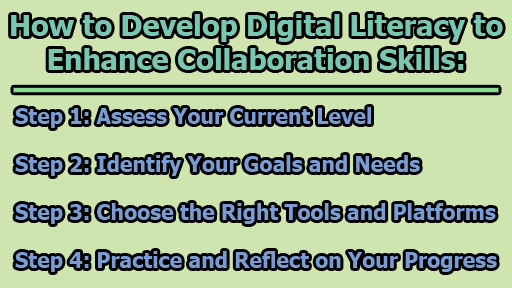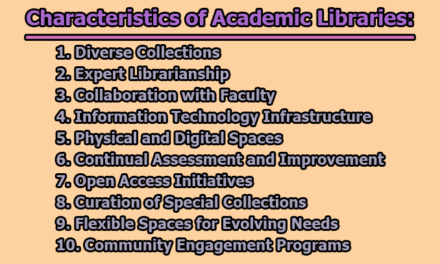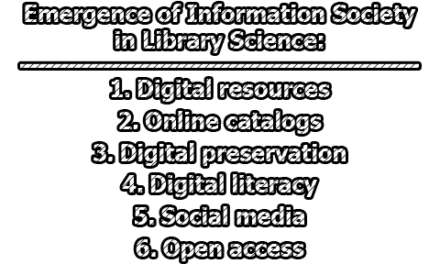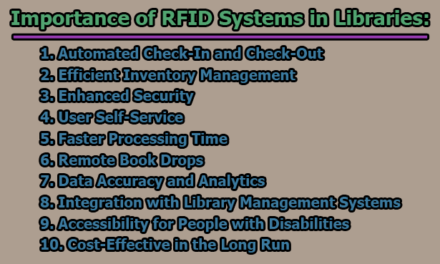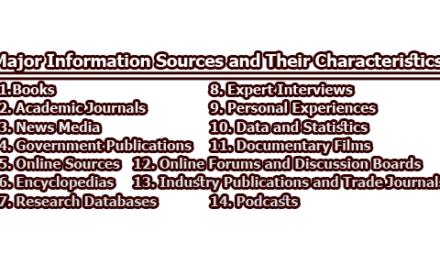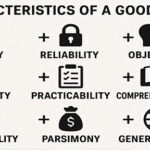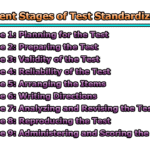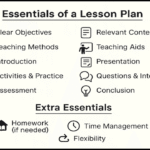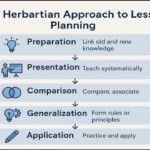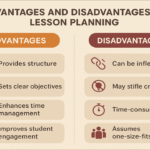How to Develop Digital Literacy to Enhance Collaboration Skills:
In our increasingly digitalized world, digital literacy has become an indispensable skill, with applications spanning various facets of our lives. One area where digital literacy is particularly crucial is in the context of library services, where professionals must collaborate with diverse groups of people, access and share resources, and participate in online communities. This article provides a comprehensive guide on how to develop digital literacy to enhance collaboration skills in four crucial steps: assessing your current level, identifying your goals and needs, choosing the right tools and platforms, and practicing and reflecting on your progress.
Step 1: Assess Your Current Level: Before embarking on the journey to enhance your digital literacy, it is essential to gauge your current skill level. Numerous frameworks and models are available to help you evaluate your digital literacy, including the Digital Competence Framework for Citizens (DigComp), the Jisc Digital Capabilities Framework, or the ACRL Framework for Information Literacy for Higher Education. These frameworks can assist you in identifying your strengths and weaknesses in various areas, such as data literacy, media literacy, communication and collaboration, digital identity and wellbeing, and problem-solving and innovation.
Assessing your digital literacy using these frameworks will provide you with a clear picture of your starting point and guide your learning process. It will help you understand which areas require the most attention and which aspects of digital literacy are essential for your role in library services.
Step 2: Identify Your Goals and Needs: Once you’ve assessed your current level of digital literacy, the next step is to set realistic and specific goals for improvement. Consider what skills and competencies are most relevant to enhancing your collaboration skills in the context of library services. To get started, ask yourself a series of questions:
- Do you need to improve your ability to use online platforms and tools for communication, such as email, chat, video conferencing, or social media?
- Do you need to learn how to create and share digital content, such as documents, presentations, images, or videos?
- Do you need to develop your critical thinking and evaluation skills to find, use, and cite reliable and relevant information sources?
- Do you need to protect your privacy and security online and respect the rights and responsibilities of others?
By answering these questions, you can define specific goals and needs that will guide your learning journey. Setting clear objectives will help you stay focused and motivated as you work towards enhancing your digital literacy.
Step 3: Choose the Right Tools and Platforms: With your goals and needs in mind, the next step is to select the appropriate tools and platforms that will aid in developing your digital literacy and collaboration skills. The digital landscape offers a plethora of options, catering to various preferences, resources, and objectives. You can explore the following options:
- Online courses, tutorials, webinars, or podcasts to learn new skills and concepts.
- Online communities, networks, or forums to exchange ideas and feedback with other learners or professionals.
- Online tools like Google Drive, Dropbox, or OneDrive for storing and sharing files.
- Online platforms such as Google Docs, Slides, or Sheets for creating and editing collaborative documents.
- Online tools like Padlet, Miro, or Jamboard for brainstorming and visualizing ideas.
- Online communication platforms like Zoom, Skype, or Teams for real-time collaboration.
Choosing the right tools and platforms aligned with your goals is crucial for efficient learning and skill development.
Step 4: Practice and Reflect on Your Progress: The final step in developing digital literacy and enhancing collaboration skills is to put what you’ve learned into practice and reflect on your progress. Practical application in real or simulated situations, such as projects, tasks, or challenges, is key to solidifying your knowledge and skills.
You should monitor and evaluate your performance and outcomes, seeking feedback from yourself, peers, or mentors. Identify what worked well and what needs improvement, then adjust your strategies and actions accordingly. Celebrate your achievements and acknowledge your challenges, and don’t hesitate to seek support and guidance when needed.
It’s essential to remain committed to continuous learning and stay updated on evolving digital technologies and practices. Digital literacy is a dynamic field, and staying current is crucial to your success in library services.
In conclusion, in the modern world, digital literacy is indispensable for collaboration, especially in the context of library services. By following the four steps outlined in this article – assessing your current level, identifying your goals and needs, choosing the right tools and platforms, and practicing and reflecting on your progress – you can develop your digital literacy and enhance your collaboration skills. Digital literacy empowers you to excel in your role and contribute effectively to the dynamic landscape of library services, fostering innovation and promoting the sharing of knowledge in a digital age.

Assistant Teacher at Zinzira Pir Mohammad Pilot School and College

